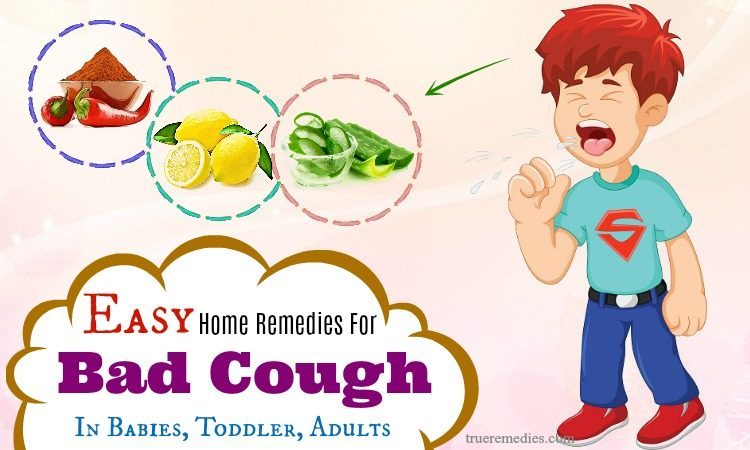Top 15 Natural Home Remedies for Whooping Cough
Table of Content
The vast majority are caused by viral upper respiratory infections, or common colds. If your child has a cold, their cough can linger for up to a month after the other symptoms have gone away. It's very rare that your baby would experience any side effect to the whooping cough vaccine.

Your healthcare expert will take your blood sample to determine the level of a white blood cell. A higher white blood cell count is usually a sign that the body is fighting off an infection. Whooping cough, or pertussis, is a respiratory infection where you may notice your child repeatedly coughing, followed by trouble catching their breath, explains Patrick. When someone has whooping cough, it’s important to watch for signs of trouble breathing or dehydration and seek medical attention immediately if you notice them.
Whooping cough can be serious for babies
The bacteria surviving in the droplets can turn into airborne when you cough and sneeze. Anyone who has close contact with peple contracting whooping cough is more likely to suffer from it too. To help your baby breathe better, hold them upright.
If given in an early stage, antibiotics can help relieve symptoms of whooping cough and prevent the spread to others. Fortunately, safe and effective whooping cough vaccines can offer both you and your baby vital protection against this disease. In children, especially, watch for signs of dehydration, such as dry lips, crying without tears and infrequent urination. Whooping cough can sometimes be very serious and can cause complications, especially for babies. People with serious illness or complications need care in the hospital. About a third of babies younger than 1 year old who get whooping cough need care in the hospital.
Vitamin C
It is an ideal treatment for both adults and children. Children under the age of 18 months with whooping cough should be watched at all times because the coughing spells can make them stop breathing. Young babies with bad cases may need hospital care, too.

Whooping cough is caused by bacteria, so it’s treated with antibiotics, which are medications that fight bacterial infections. It’s possible to recover without antibiotics, but the medicine can help you recover faster. In addition, you can use home remedies like a humidifier to manage symptoms at home. Whooping cough or pertussis is a highly contagious respiratory disease with a characteristic whooping sound and uncontrollable persistent coughing . While you wait to get it confirmed, remedies for whooping cough at home can help you get some initial relief. While whooping cough can affect adults, it is more common in infants and children, causing much distress.
Cold
Of those babies who get treatment for whooping cough in a hospital, about 1 out of 5 will get pneumonia and 1 out of 100 will die. Other complications include violent, uncontrolled shaking, apnea (life-threatening pauses in breathing), and encephalopathy . People with whooping cough symptoms are considered contagious after five days of antibiotic treatment or 21 days after the beginning of a cough when medication is not given. When you treat whooping cough, there are certain precautions to consider. The antibacterial properties of ginger could potentially clean the lymphatic system and prevent toxin accumulation that makes people susceptible to respiratory infections.

For children over the age of one, you can try a homemade cough recipe of honey dissolved in warm water and lemon juice. Bronchiolitis is an infection that affects the bronchioles, the small breathing tubes inside the lungs, and can cause a dry and persistent cough. It is a common disease in early childhood, mostly affecting children under 2 years of age. Bronchiolitis is usually caused by the respiratory syncytial virus , which causes inflammation and swelling in the bronchioles. Usually, people get better within the first four ways of the infection. Some people, especially young babies, may need to be hospitalized for whooping cough.
Regular intake of chamomile tea could possibly provide relief of whooping cough symptoms, such as a severe cough attack or difficulty breathing. Add a tablespoon of lemon juice to a glass of warm filtered water, and consume several times daily for a few days’ period. Raw honey might be another effective home remedy for whooping cough due to its antibacterial and antiseptic properties.

Make sure your baby drinks this turmeric milk twice everyday for best results. If your child is suffering from a heavily blocked nose, a regular affair every time a cold strikes, it would be best if you invest in anasal aspirator. As the baby is too young to consciously sneeze, nasal aspirators will quickly suck out the mucus without irritating or causing harm to the baby. If your baby is above six months of age or has been introduced to drinking water, then make sure the baby drinks sips ofajwain, cumin or tulsi water at regular intervals.
The Food and Drug Administration doesn't recommend use of such medications in kids under 2. Verywell Health articles are reviewed by board-certified physicians and healthcare professionals. These medical reviewers confirm the content is thorough and accurate, reflecting the latest evidence-based research. Content is reviewed before publication and upon substantial updates.

At the same time, the CDC also suggests everyone not use any over-the-counter cough medicine for Whooping Cough, as they are not going to work on whooping cough. First of all, your healthcare expert suggests you go with antibiotics as they can help you cut down the cuffing and intensity of other symptoms. Usually, healthcare experts suggest the use of antibiotics during the first week of the infection. Lastly, your healthcare expert might also suggest you go for a chest X-ray that can show your healthcare provider whether you have any inflammation or fluid in your lungs. The general time frame of the whooping cough vaccine is going to fall between the second month to 6th year after the birth.
Here are 10 of the most popular at-home treatments for a wet cough. Any combination medicine for treating more than one symptom is likely to give kids more side effects and increase the risk of overdose. In addition to enough water, you can offer popsicles to increase fluids and soothe a sore throat. Staying hydrated is especially important when your child is sick. Water helps the body fight illness and keeps airways moist and strong.
This stage lasts for almost two weeks and is often accompanied by occasional coughs, sneezing, and nasal congestion. Coughing is usually a reflex action to any foreign substance or mucus in the throat that only lasts for some time. All these remedies can help relieve the symptoms of whooping cough for you and your little one. Turmeric contains a compound called curcumin that has antimicrobial properties .
In a hospital, they’ll be treated with fluids, suctioning mucus, and antibiotics. Sometimes, it can lead to vomiting, trouble breathing and even a cracked rib. In babies at this stage, secondary pneumonia often occurs because the whooping cough makes them more vulnerable. Infants are typically hospitalized for treatment because whooping cough is more dangerous for that age group. If your child can't keep down liquids or food, intravenous fluids may be necessary. Your child will also be isolated from others to prevent the infection from spreading.
A wheezing cough is a high-pitched, whistling-like noise. Babies have smaller airways than adults so they can be at an increased risk for symptoms like wheezing. This article will explain how whooping cough, also known as pertussis, is treated.
Comments
Post a Comment